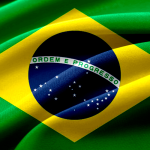
Armenian Christmas Eve
Armenian Christmas Eve is a public holiday that’s observed annually on the 5th of January. Although Orthodox Christmas Eve is usually observed on the 6th of January, Armenians have maintained their holiday on the 5th since the 4th century.
This holiday is celebrated with a variety of observances, including the “lighting of the lamps” and the consumption of a special meal. A meal that typically consists of fish, stuffed grape leaves, pilaf, as well as a variety of sweets and pastries. This day is also marked by people giving each other gifts and spending time with one another.
The History of Armenian Christmas Eve
The birth of Christ was never established or recorded in the Gospels, so any date on which Christmas is placed is due to tradition. Historically, all Christian churches celebrated the birth of Christ on the 6th of January, but that changed in the fourth century.
The date was changed in many places from January 6th to December 25th because the Romans wanted to override a pagan feast dedicated to the birth of the Sun that took place on the 25th of December.
During this time, it was common for Christians to not only practice their “new” religion but also to practice the “old” pagan religions. The Romans looked down on this practice, so the church hierarchy made December 25th the official date of Christmas and January 6th as the Feast of Epiphany.
Because there were no pagan practices in Armenia that needed to be counteracted, there was no need for the Armenian Christmas to be moved. Armenian Christmas traditions would remain independent of influence from Rome.
Therefore, it remained on January 6th. Other Orthodox Churches celebrate on or near January 7th because they celebrate this holiday according to the Julian calendar and not the Gregorian calendar. Armenian Christmas and Christmas Eve are one of the few celebrations of the birth of Christ that has lasted for over 1,700 years.
Observing Armenian Christmas Eve
Devoted Armenians will feast the week before Christmas Eve, which is why it’s important for them to break their fast with Khetum—an Armenian Christmas Eve Dinner that features a light menu and is, therefore, easy on the stomach.
This meal usually consists of yogurt and barley soup, fish, Swiss chard with chickpeas, and dried fruits and nuts. It’s also typical to eat desserts such as Sharots (walnuts threaded on a string and covered in grape jelly), Anoushabour (wheat pudding with apricots and berries), and wine.
It won’t be until Christmas Day that heavier dishes are served. This holiday is also an important one from a religious perspective. It’s a time when many Christians attend special Christmas Eve services. Other practices observed on this holiday include Lighting of the Lamps ceremonies, Blessing of Water ceremonies, and, of course, the exchange of gifts.
This is also a holiday when people spend time with their family. For people outside of Armenia who want to broadcast this holiday online, the hashtag #ArmenianChristmasEve can be used on social media.








